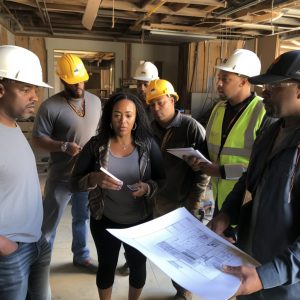In the fast-paced world of the modern workforce, the pursuit of equality, diversity, and inclusion has become a clarion call. While progress has been made, certain groups continue to face barriers that limit their access to opportunities. Specialized training has emerged as a potent tool in dismantling these barriers, particularly for Equity Eligible Persons. By tailoring training programs to address the unique challenges faced by underrepresented groups, we not only equip individuals with essential skills but also contribute to a workforce that reflects the true richness of our society.
Understanding Equity Eligible Persons
Equity Eligible Persons often belong to demographics that historically face disadvantages in the job market. These include but are not limited to minorities, women, veterans, and individuals with disabilities. These groups, despite their potential and capabilities, may encounter systemic hurdles that impede their access to quality education and employment opportunities.
Tailoring Programs to Address Unique Needs
Specialized training for Equity Eligible Persons goes beyond a one-size-fits-all approach. It involves a nuanced understanding of the challenges faced by each group. For instance, women may encounter gender bias in certain industries, while veterans might need assistance transitioning their military skills into civilian roles. Tailoring programs to address these specific needs is pivotal for breaking down barriers.
1. Women in the Workforce:
Addressing Gender Disparities
Women, although comprising a significant portion of the workforce, are often underrepresented in certain industries. Specialized training programs designed for women take into account unique challenges, offering mentorship, networking opportunities, and skill-building activities that empower them to thrive in traditionally male-dominated fields.
2. Veterans Transitioning to Civilian Roles:
Bridging the Military-Civilian Gap
Veterans bring a wealth of skills and discipline gained through military service. However, transitioning to civilian roles can be challenging. Specialized training programs assist veterans in translating their military experience into valuable skills applicable in various industries, ensuring a smoother transition into the civilian workforce.
3. Minorities Facing Systemic Barriers:
Breaking Down Systemic Hurdles
Ethnic and racial minorities may face systemic barriers that limit their access to educational and employment opportunities. Specialized training programs acknowledge these challenges and provide targeted support, enabling individuals from minority communities to overcome obstacles and contribute meaningfully to the workforce.
Access to Empowering Skills
The core objective of specialized training for Equity Eligible Persons is to empower individuals with the skills necessary to navigate and excel in their chosen fields. This training goes beyond traditional education, focusing on practical, industry-specific skills that enhance employability. From technical skills to soft skills like communication and leadership, these programs create a holistic learning environment.
1. Technical Skills for Industry Relevance:
Bridging the Skill Gap
Equity Eligible Persons often face a skill gap that hinders their access to certain industries. Specialized training addresses this gap by providing hands-on, industry-relevant technical skills. For example, training in technology, construction, healthcare, and other high-demand sectors equips individuals with the tools needed to thrive in competitive markets.
2. Soft Skills for Professional Growth:
Enhancing Communication and Leadership
Beyond technical proficiency, specialized training emphasizes the development of soft skills crucial for professional success. Communication, teamwork, and leadership skills are cultivated, ensuring that Equity Eligible Persons not only secure employment but also advance and thrive in their careers.
Fostering Diversity and Inclusion
Diversity and inclusion are not just buzzwords; they are essential components of a thriving and innovative workforce. Specialized training fosters diversity by breaking down barriers that limit access to opportunities. It creates an environment where individuals from all backgrounds can contribute their unique perspectives, leading to more creative problem-solving and enhanced productivity.
1. Creating a Representative Workforce:
Reflecting the Richness of Society
Tailored training programs actively contribute to creating a workforce that mirrors the diversity of our society. As Equity Eligible Persons gain access to opportunities and ascend in their careers, workplaces become more representative, fostering an inclusive atmosphere where everyone feels valued and appreciated.
2. Fostering Innovation Through Diverse Perspectives:
Enhancing Problem-Solving
Diverse teams bring varied perspectives to the table, enhancing innovation and problem-solving. Specialized training ensures that individuals from underrepresented groups are equipped to participate fully in professional settings, contributing their unique insights to drive positive change.
Conclusion
In conclusion, specialized training emerges as a powerful catalyst for empowering Equity Eligible Persons. By addressing the unique challenges faced by underrepresented groups, these programs not only equip individuals with essential skills but also contribute to a diverse and inclusive workforce. As we navigate towards a future that values equality, it is imperative to recognize the transformative potential of specialized training in breaking down barriers and creating a more equitable professional landscape. Through these efforts, we can build a society where opportunities are accessible to all, irrespective of background or identity.


No Comments